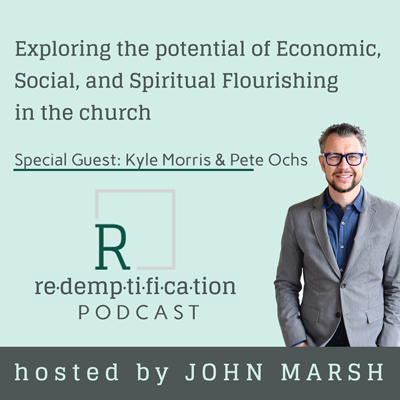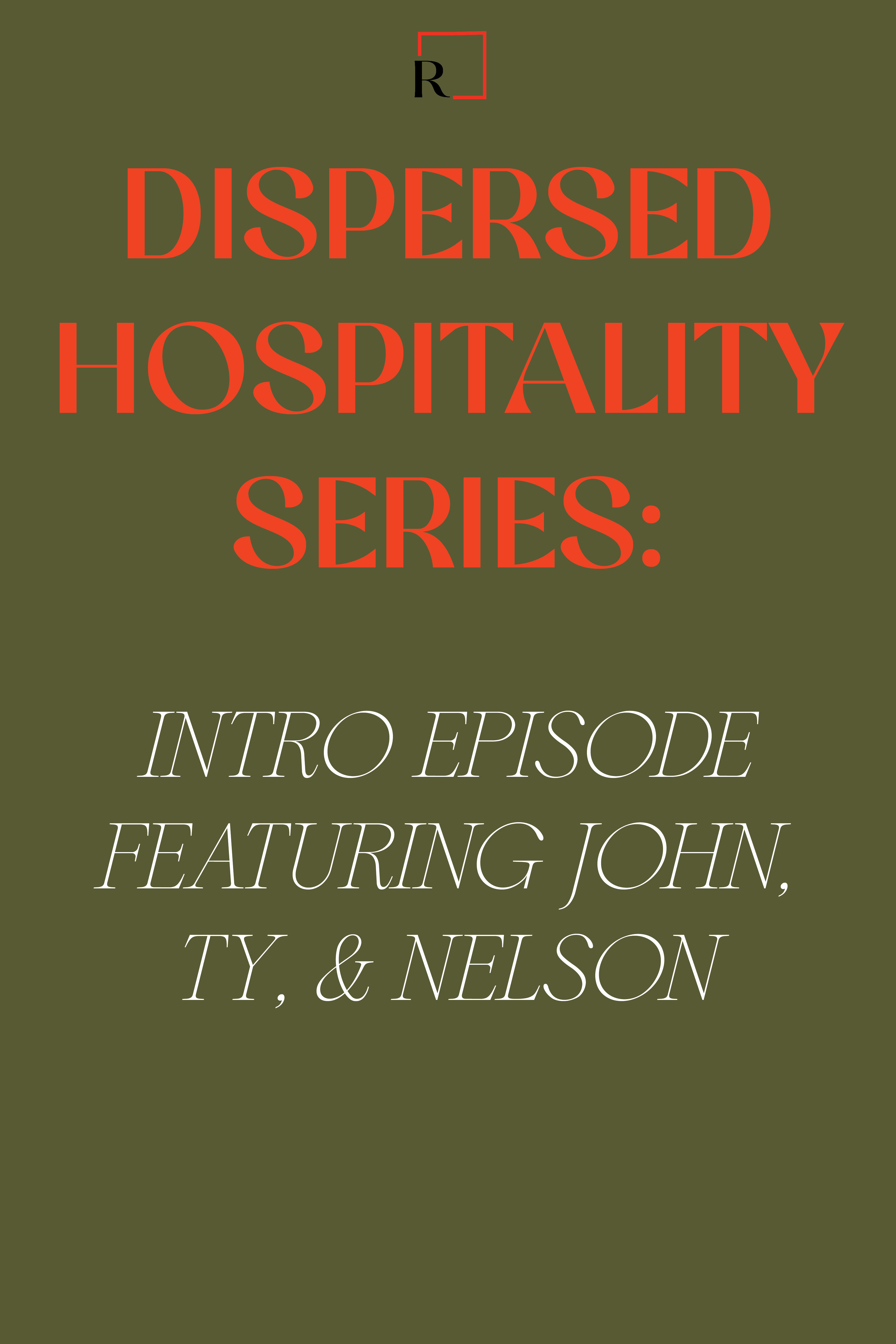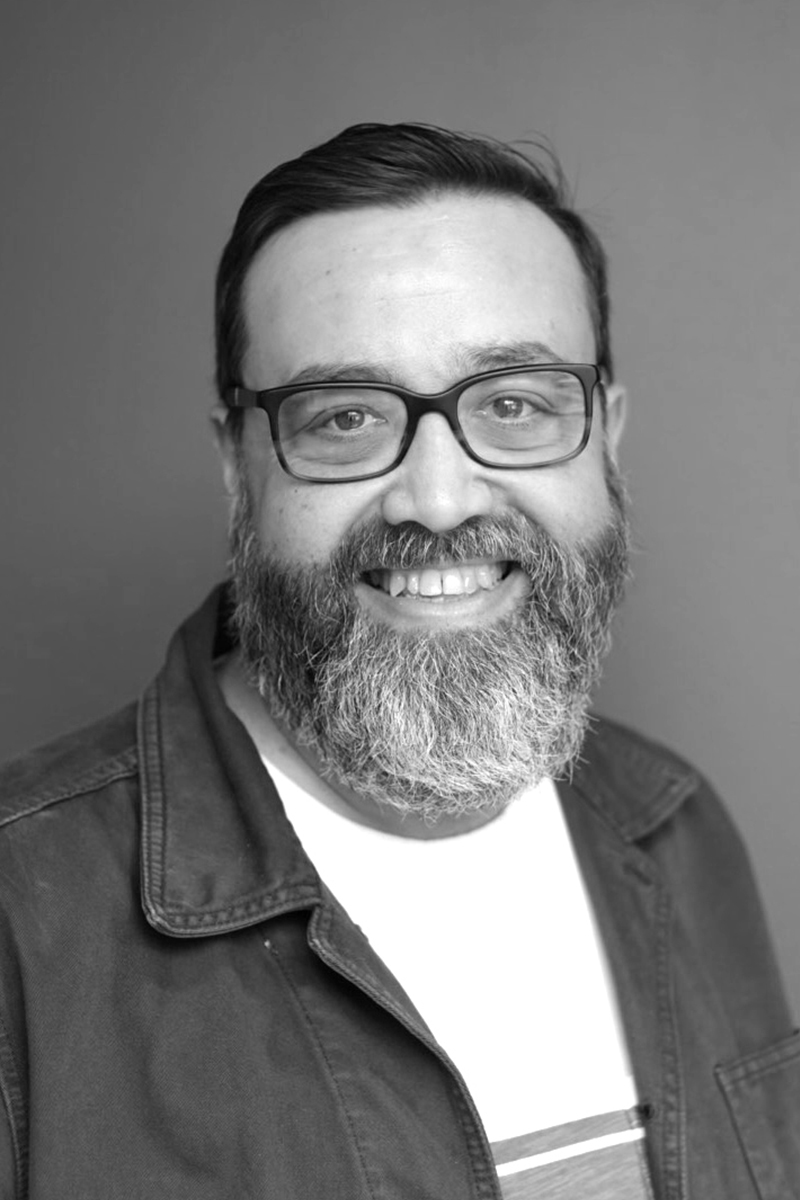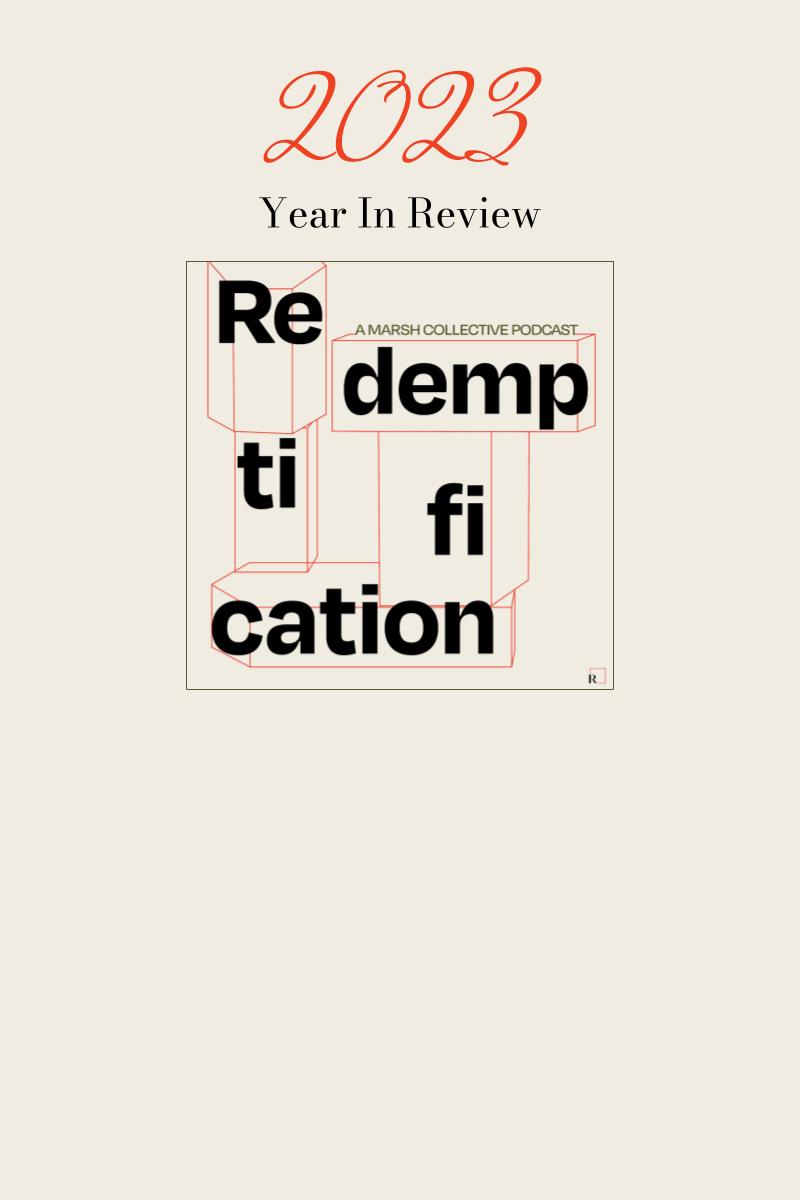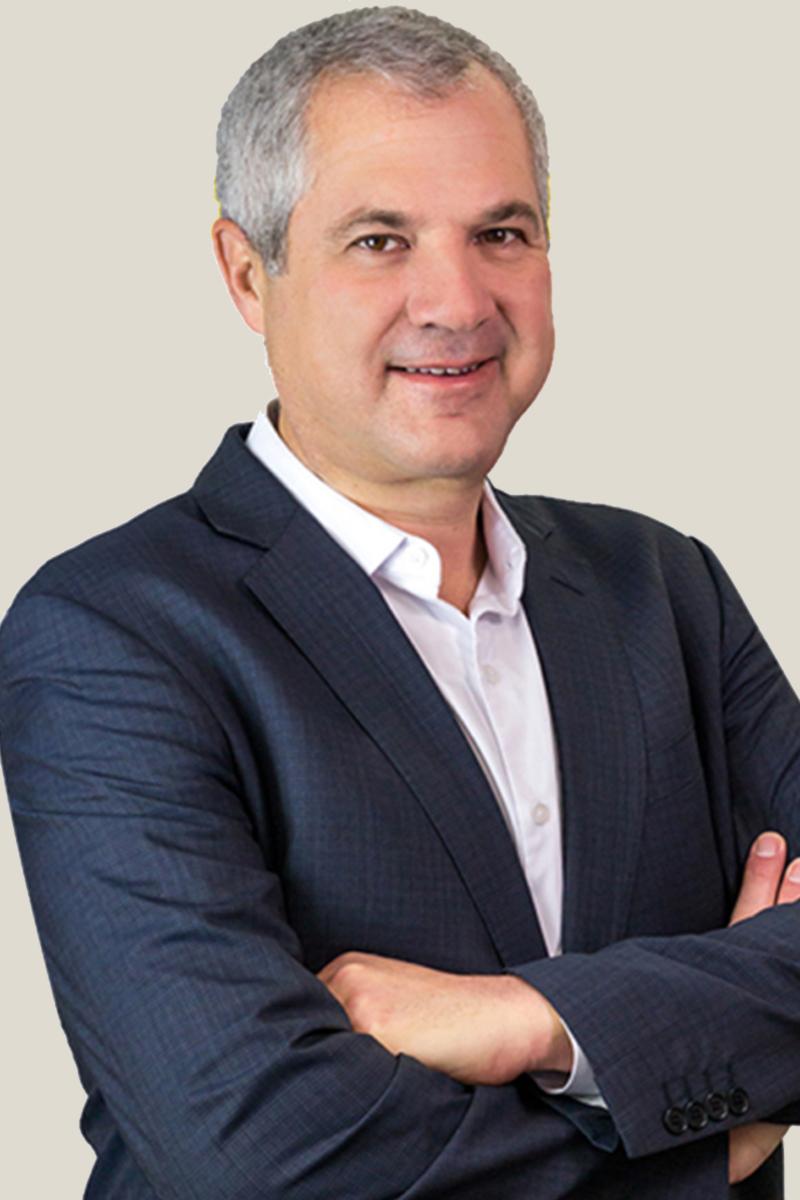Exploring the potential of Economic, Social, and Spiritual Flourishing in the church with special guests Kyle Morris and Pete Ochs
Pete Ochs is founder and chairman of Capital III, an impact investment company with investments in the US and Central America. Enterprise Stewardship is an initiative of Capital III that equips marketplace leaders with resources to transform their personal LIFE and business enterprises.
Kyle Morris is the Lead Pastor at Revive Church in Arvada, and has been in ministry and leadership for over 13 years. He is passionate about creating an environment for his staff to grow in leading themselves and their ministries well.
Insights & Inspirations
- I think that was the biggest kind of light bulb moment of going, “Hey, actually we do care about this space. We do want to steward it for God’s glory, and that’s going to require making some significant shifts in how we use it.” – Kyle Morris
- What we’re doing right now is we’re shrinking our footprint as a church in order to increase our imprint in the community. What that means is we’re going from 75,000 square feet to about 32,000 square feet, and what that’s going to do is that’s going to open for workforce development. We’re looking at some subsidized child care, food and beverage, a lot of just different opportunities to basically create what we’re calling the bridge for loving vulnerable families and families in need. – Kyle Morris
- Wow. Kyle, I have never heard a pastor say what you have just said. I’ve never heard a pastor say, “We’re going from 75,000 feet to 30,000 feet.” Brother, I am telling you, I am drinking out of the same cup as you are, and the same thing we have to do in business, but it’s not shrinking my business, it’s shrinking my personal wealth that I create in my business, and putting it back in the community. – Pete Ochs
- “Hey listen, these three categories,” or what we would say holistic Shalom, “this is since the beginning, right?” God gave Adam meaningful economic work. He created meaningful relational social connections, and then He gave him … He said, “Hey, come walk with me in the cool of the garden.” There is this spiritual connection. – Kyle Morris about what Pete Ochs said.
- There are three forms of capital, economic, social, and spiritual. There are three states of being, poverty, wealth, and capital. Poverty is simply not enough. If you’re poor, you don’t have enough. Wealth, you have enough. Capital, by definition in the dictionary, is excess wealth. It’s wealth that you were willing to put at risk.- Pete Ochs
- Let me go through economic poverty, wealth, and capital, and then I’ll go through the others real quickly. Economic poverty, you don’t have enough to eat. You’re poor financially. If you have enough to eat, and you have some money in your savings account, and you have a job, you are probably economically wealthy. You have enough. You’re not starving. If you have more than you need, and this is the big question here is how much is enough. I’m just going to say for me, if I’ve got a house that’s paid for, or I can make the payments, I have a car, I have a good job, and I have some money in my savings account, use the Dave Ramsey or whatever you want to say, a year or two’s worth of wealth, and I’m putting some money in my retirement account, I am wealthy. If I have more than that, I am an economic capitalist. The problem is because of lack of faith, we don’t want to take what we just need, and we want more than we need, and then we don’t take that and put it at risk. – Pete Ochs
- It’s economic wealth that’s beyond what we need that we’re willing to take risk with. – Pete Ochs
- Let me talk about spiritual capital. If I don’t know Jesus, I’m poor. I’m spiritually poor. If I know Jesus, I’m spiritually wealthy. If I know Jesus, and know a little bit of scripture, and have gone down the journey, I would say, in some sense I could almost argue, that the minute that you know Jesus, you’re wealthy. Then, at some point in time in the future, you know enough about Jesus that you moved from wealth to capital. You are willing to take your faith and share it, and risk it. – Pete Ochs
- That’s kind of the way I view poverty, wealth, and capital. I think in some sense, people need whatever terms you use, I do think that progression is important. I do think that the parable of the talents and the ability to take risk is really that … How do we get our congregation to go into the community and take risks? The opposite of Matthew 25, I think, is Luke 12, The Rich Young Ruler. I’ve got these great crops. What do I do? I’m going to tear down my barns. I’m going to build bigger barns. I’m going to eat, drink, and be merry. What did Jesus say? You fool. He treated his wealth as wealth, and not as capital for the kingdom. He didn’t want to take risks. – Pete Ochs
- Is the church at a place, the church as a whole, seeing their real estate and their holdings there, that it is actually something that God expects them to steward, to be found faithful with. What would a church look like that was in poverty with their real estate? What would one look like that was wealthy, and what would one look like that was using it as a form of capital? – John Marsh
- I do think that there are four institutions that God has ordained. The family, the church, the marketplace, and the government. The first three are creators. The family, I think, is the primary creator of social capital. It’s where we learn to get along, and love each other, and work together. The church is a primary creator of spiritual capital, and the business community is the primary creator of economic capital. The government should only be the protector of the environment that allows those other three to flourish. – Pete Ochs
- Let me go back to the parable of the Good Samaritan for a moment, and you alluded to this. You see the priest and the Levite, the spiritual guys, walking down the road, saw the guy, and I think it literally says they walked around him. I mean I think they didn’t walk within …Passed on the other side, so in my mind, I’m thinking what they’re thinking. “If that guy would just get Jesus over there, everything would be fine.” They kept on walking. The Good Samaritan, on the other hand, came along, picked him up, and took him to the hotel, bought him whatever he needed, took care of him. Said, “Hey, if you need more money, innkeeper, I’m here.” Our motto is that we lead with economic capital. We follow with social capital, and the doors to spiritual capital fly open. – Pete Ochs
- Economically, if you think of an income statement, our net operating income line is the measure of our economical capital creation. We spend a lot of money on churches, and seminaries, and all that stuff, but we don’t shove that stuff above the net operating income line. We want a pure and a clean net operating income line. Then, below that, we have a bunch of categories for all this stuff for social and spiritual capital expenses. We look at that, and then we say, “Okay, we spent this amount of money.” On our KPIs, we measure the outputs for economic capital. If you put a business in there, or you’re renting it, make sure that your economics are true and pure. Then, we measure the inputs on social and spiritual capital. We believe we plant, we water, and God causes a growth. What we measure is how well do we plant? How well do we water? – Pete Ochs
- I just really think this concept of flourishing makes your people really, really understand that and that takes three components. It takes money. It takes relationships, and it takes Jesus to be just very simple about this. – Pete Ochs
- … it takes all three to flourish. If you have a great job, and a lot of friends, and no Jesus, you’re not flourishing. – Pete Ochs
- I think those three Ps flow all through scripture. It started back with Eve when she was presented the apple. It looks nice, pleasure. It takes goods, possessions, and it’ll make you like God, pride. Solomon talked about pride, pleasure, and possessions. Jesus was presented with pride, pleasure, and possessions when he came out of the 40 days, time in the desert. Then in 1 John:2:15, 16, “Do not love the world, or anything in the world. For everything in the world, the cravings of central man, possessions, the lust of his eyes, pleasure, and the boasting of what he has and does, pride comes not from the Father, from the world.” Every sin we commit, I think, falls into one of those three things, pride, pleasure, possessions.- Pete Ochs
Information & Links
- Revive Church – Arvada, CO
- Pete Ochs
- Capital III – making an impact content
- High Impact Life
- Enterprises Stewardship
- Seat King
- Electrex
- Generous Giving
- NCF
- Deal Makers
- Trailer on Prison Ministry
